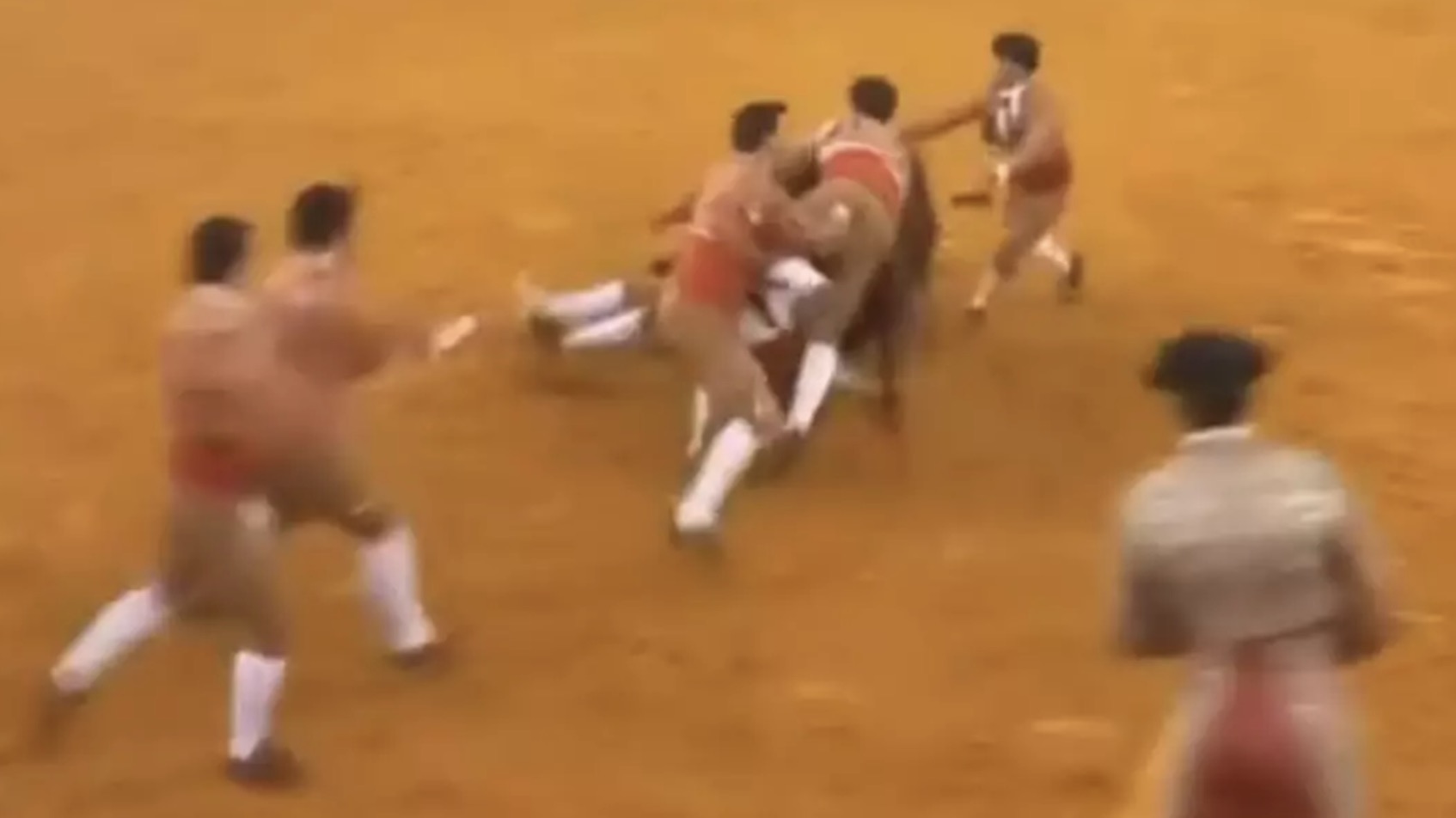
A promising young Portuguese bullfighter, Manuel Maria Trindade, aged 22, tragically lost his life during his debut performance at Lisbon’s historic Campo Pequeno arena. The fatal incident occurred on the night of Friday, 22 August, in front of a crowd of thousands.
Trindade was performing as a forcado, a traditional role in Portuguese bullfighting that involves attempting to subdue a bull using only physical strength. During the final act, known as the “pega de cara”, he stood at the front of a line of eight men, tasked with grabbing the bull by its horns. However, the 700-kilogram bull charged at full speed, violently tossing Trindade into the air and slamming him against the arena’s wooden and concrete barrier.
The horrifying moment was captured on video and quickly circulated online, showing the bull continuing its rampage even as other forcados tried to intervene. Emergency medical teams rushed to Trindade’s aid and transported him to Hospital de São José in Lisbon, where doctors induced a coma due to severe head trauma. Despite their efforts, he succumbed to his injuries the following day after suffering an irreversible cardiac arrest.
In a tragic twist, a 73-year-old spectator, Dr Vasco Morais Batista, also died during the event after suffering a ruptured aortic aneurysm. He was an orthopaedic surgeon and was rushed to hospital but did not survive.
Trindade was a member of the Forcados Amadores de São Manços and was following in the footsteps of his father in the traditional art of bullfighting. The organisers of the event expressed their condolences to his family and team.
Portuguese law prohibits the killing of bulls in the arena, a rule dating back to a royal decree in 1836. Instead, bulls are removed and euthanised in a slaughterhouse. The fate of the bull involved in this incident has not been disclosed.
The deadly event has reignited discussions about the dangers and ethical concerns surrounding bullfighting. While seen by some as a cultural tradition, it remains a deeply controversial practice, criticised by animal rights advocates for its inherent violence.
Campo Pequeno, with a capacity of 6,848, now bears the memory of a night that ended in sorrow and loss, highlighting the perilous nature of a centuries-old spectacle.

